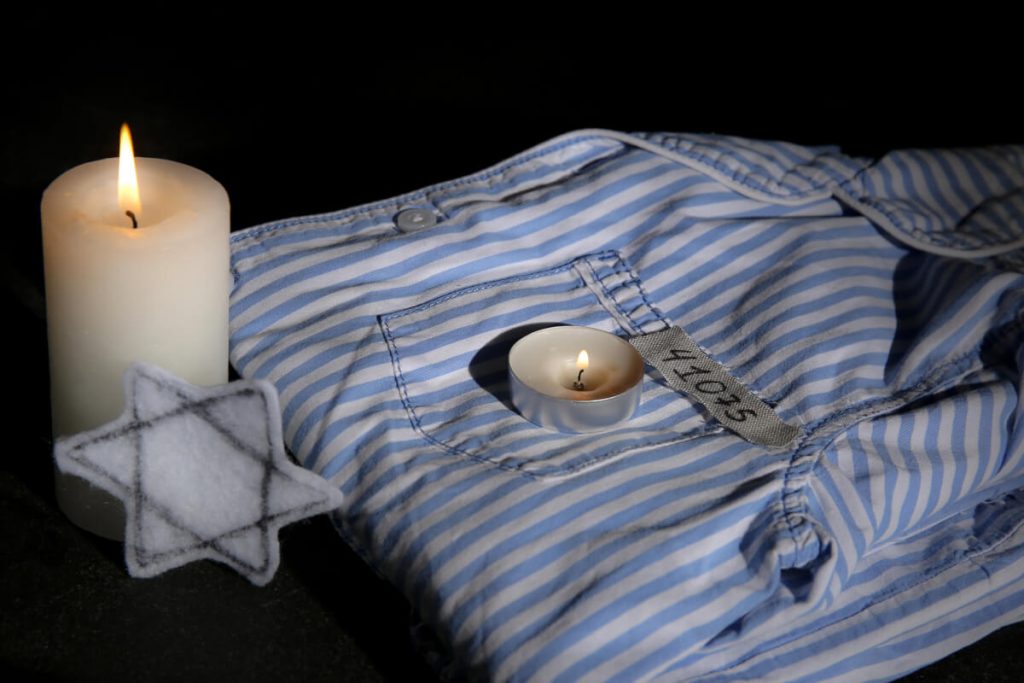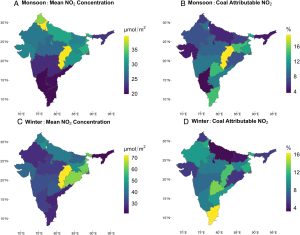

Burning candles with Jewish badge and prisoner uniform from the Holocaust. (© Pixel-Shot – stock.adobe.com)
TEL AVIV — As antisemitism surges globally in the wake of October 7, an unlikely phenomenon provides grounds for cautious optimism: the emergence and continued operation of Holocaust museums and exhibitions in Muslim-majority countries. A new report from Tel Aviv University’s Center for the Study of Contemporary European Jewry documents this development, highlighting how these institutions are working to combat Holocaust denial and antisemitic propaganda in parts of the world where such beliefs often flourish unchallenged.
The report, titled “For a Righteous Cause,” examines three notable examples: Indonesia’s first Holocaust museum on the island of Sulawesi, a permanent Holocaust exhibition in Dubai, and two museums under construction in Albania. What makes these institutions remarkable is not just their location in Muslim-majority countries, but their resilience in continuing to operate even after October 7, when antisemitic rhetoric and anti-Israel sentiment intensified across much of the Muslim world.
Indonesia: A Small Light in the World’s Largest Muslim Nation
The Indonesian Holocaust Museum, which opened in January 2022, represents a particularly striking case. Located in the remote town of Tondano, the museum was founded by Rabbi Ya’akov Baruch, an Indonesian of Dutch-Jewish descent who leads a tiny Jewish community in North Sulawesi province. The museum features powerful exhibits including a replica concentration camp bunk bed, historical photographs, and educational materials about Nazi crimes and modern neo-antisemitism.
The museum’s establishment initially sparked fierce opposition from influential Islamic organizations. The Indonesian Ulema Council, the country’s top Islamic clerical body, demanded its closure, claiming it served Zionist interests and whitewashed Israeli actions against Palestinians. However, through careful dialogue and by emphasizing the museum’s focus on historical education rather than contemporary politics, Rabbi Baruch managed to defuse tensions and keep the institution operating.
While visitor numbers have declined from initial peaks of 50 people daily to sometimes just one visitor per day, the museum has reached approximately 2,000 people in its first three years. Perhaps most significantly, it has hosted school groups and attracted visitors from multiple faiths and nationalities, including some conservative Muslim women who were moved to tears upon learning about the Holocaust for the first time.
Dubai: Breaking New Ground in the Gulf
The “We Remember” exhibition at Dubai’s Crossroads of Civilizations Museum represents another breakthrough in Holocaust education in the Muslim world. Established in 2021 following the Abraham Accords, it stands as the first permanent Holocaust memorial exhibition in the Arab world.
The exhibition’s founder, Ahmad ‘Ubayd al-Mansuri, a former parliament member and businessman, has taken a unique approach by highlighting both the singularity of Nazi crimes and stories of Muslim heroes who saved Jews during the Holocaust. This includes the remarkable tale of Muhammad Hilmi, an Egyptian doctor who protected Jewish friends in Berlin at great personal risk, becoming the first Arab recognized as “Righteous Among the Nations” by Yad Vashem.
In an interview for the report, al-Mansuri estimated that about 2,500 people from the UAE and Gulf states have visited the exhibition, along with thousands of schoolchildren. Notably, he reports receiving no pressure to close the exhibition even after October 7, though he did postpone some Holocaust memorial events to avoid politicization.
Albania: Celebrating a Legacy of Rescue
Albania’s upcoming museums in Tirana and Vlora will commemorate a unique chapter in Holocaust history: Albania was the only European country with more Jewish residents after World War II than before it. This remarkable outcome stemmed from the Albanian ethical code of “Besa,” which obligates protection of guests and neighbors regardless of their background.
The Besa Museum in Tirana and the Jewish Museum in Vlora will explore how this cultural value motivated Albanians, both Muslims and Christians, to shelter Jewish citizens and refugees despite the risks. The museums will also examine Albania’s broader Jewish heritage and interfaith relations, with completion expected by 2026 and 2027 respectively.
Broader Themes and Cultural Shifts In Holocaust Education
Beyond these specific institutions, the report explores several other significant developments in Holocaust remembrance and Jewish identity. A fascinating analysis examines how Jerry Seinfeld’s relationship with his Jewish identity has evolved from the comfortable assimilation displayed in his 1990s sitcom to his recent passionate advocacy for Israel following October 7. This shift is presented as emblematic of broader changes in American Jewish identity in response to rising antisemitism.
The report also raises important questions about Holocaust education in the West through a provocative interview with historian Sir Max Hastings. While supporting the fundamental importance of Holocaust education, Hastings argues for teaching it within broader historical context, suggesting current approaches sometimes overshadow other aspects of World War II and other genocides.
Challenges and Recommendations
The report’s authors, led by Professor Uriya Shavit, emphasize that while these Muslim-world Holocaust museums represent important progress, they face significant challenges. They counsel against direct Israeli involvement, which could undermine the institutions’ credibility in their local contexts. Instead, they recommend support from international organizations while pushing for broader elimination of Holocaust denial from educational systems in Muslim countries.


The report also highlights the delicate balance these institutions must strike between historical education and contemporary politics. The Indonesian and Dubai museums have succeeded partly by maintaining clear separation between Holocaust history and current Middle East conflicts, though this becomes increasingly challenging in times of heightened tensions.
Looking Forward
These museums represent small but significant steps toward confronting Holocaust denial and antisemitism in the Muslim world. Their continued operation even during periods of intense anti-Israel sentiment suggests the possibility of separating Holocaust education from current political conflicts, although this remains a constant challenge.
As Professor Shavit notes in the report, these institutions may represent just “a small amount of light,” but in regions where Holocaust denial and antisemitic propaganda often go unchallenged, even small lights can illuminate important paths forward. Their existence demonstrates that even in challenging environments, there are always individuals and institutions willing to stand for historical truth and human dignity.







